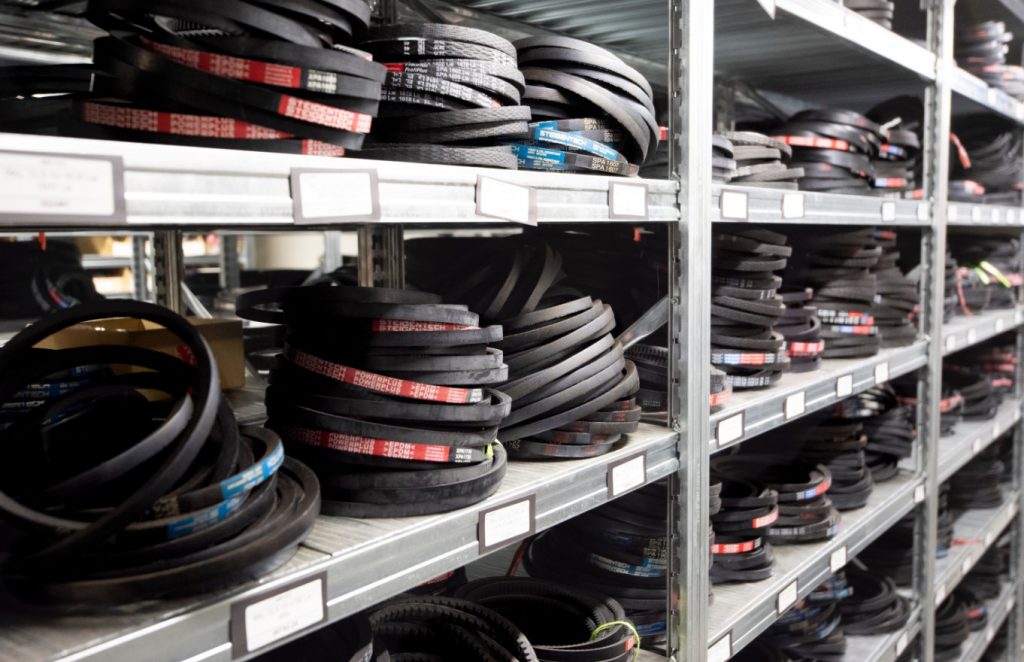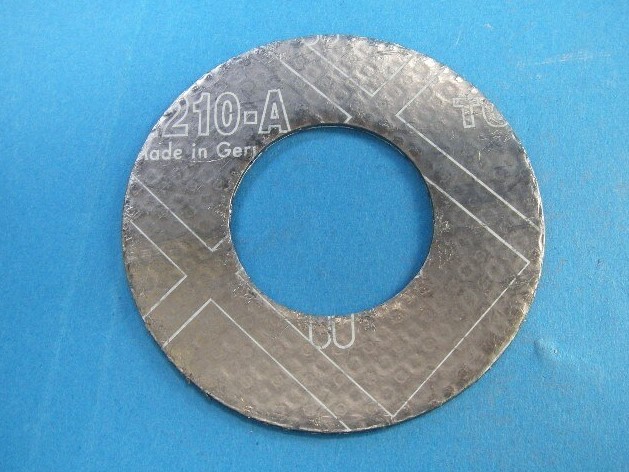
Uncover the characteristics of polyurethane gaskets by Gasketech. Explore their primary applications in various industries in Australia. Call (03) 9690 2577.
Gaskets play a crucial role in sealing and protecting components in a wide range of industries. Among the materials used for gaskets, polyurethane stands out for its versatility and performance. At Gasketech, we supply high-quality polyurethane gaskets to a variety of industries, making sure they maximise the right sealing components for their applications.
Main Characteristics of Polyurethane Gaskets
Polyurethane is a synthetic polymer known for its versatility, durability, and resilience. Once used for gaskets, it can easily create a secure and often airtight seal between two surfaces, preventing the leakage of fluids, gases, or contaminants. Polyurethane gaskets can also protect sensitive components.
These gaskets are favoured in many industries due to their unique characteristics.
For one, polyurethane gaskets can resist many chemicals, oils, and solvents, making them suitable for applications where exposure to harsh substances is common. They can also withstand wear and abrasion, which makes them ideal for sealing applications in machinery and equipment subjected to friction and movement.
These gaskets likewise have a wide temperature tolerance range, with some formulations capable of handling extreme cold or high-temperature environments. Other qualities of polyurethane gaskets include tear resistance, water and moisture resistance, and impact resistance.
Ultimately, polyurethane gaskets can maintain their sealing properties even when compressed or subjected to varying pressures, thanks to their flexibility.
Polyurethane Gaskets: Primary Applications
Polyurethane gaskets come in various shapes and sizes, including O-rings, flat gaskets, custom-moulded gaskets, and more. Their versatility and ability to adapt to specific requirements make them valuable in the following industries.
1. Automotive: Polyurethane gaskets are extensively used in the automotive sector for sealing engine components, transmissions, and exhaust systems. They offer excellent resistance to oil, fuel, and high temperatures, ensuring reliable performance in demanding conditions.
2. Manufacturing: In manufacturing, precision and durability are paramount. Polyurethane gaskets provide tight seals in machinery, preventing leaks and contamination. They are often used in hydraulic systems, pneumatic equipment, and heavy machinery.
3. Aerospace and Defence: In aerospace and defence applications, where reliability is critical, polyurethane gaskets are chosen for their resistance to extreme temperatures and harsh chemicals. They are used in aircraft components, missile systems, and more.
4. Marine and Offshore: The marine and offshore industries rely on gaskets to prevent water ingress and protect sensitive equipment. Polyurethane gaskets excel in maritime applications, resisting saltwater corrosion and maintaining sealing integrity.
5. Electronics and Electrical: Polyurethane gaskets play a vital role in protecting electronic and electrical components from dust, moisture, and contaminants. They are used in control panels, electrical enclosures, and sensitive electronic devices.
7. Food and Beverage Processing: Polyurethane gaskets are safe for use in food and beverage processing equipment. They resist chemicals, temperature variations, and abrasion, making them ideal for sealing in this industry.
8. Construction and Building: Polyurethane gaskets are used in construction and building applications for sealing windows, doors, and HVAC systems. They contribute to energy efficiency by preventing drafts and leaks.
Polyurethane gaskets, which are available at Gasketech, are versatile and find applications across a wide spectrum of industries. Their resistance to chemicals, temperature extremes, and wear, along with their ability to maintain tight seals, make them indispensable components in ensuring the reliability and functionality of various products and systems.

Unlock the world of high-temperature applications with graphite/Kevlar composite gaskets. Available at Gasketech, uncover their uses. Call us at (03) 9690 2577.
The quest for materials that can withstand extreme temperatures continues today. Fortunately, industrial engineering has evolved significantly over the past few decades, leading to substantial improvements in the processing of raw materials into useful products. Graphite/Kevlar composite gaskets, for instance, have emerged as versatile solutions for high-temperature applications, showcasing their resilience and adaptability in the face of challenging environments.
The Composition of Graphite/Kevlar Composite Gaskets
Graphite/Kevlar composite gaskets are specialised sealing materials engineered by mixing two distinct components: flexible graphite sheets and Kevlar fibres. This innovative combination generates a material that capitalises on the unique thermal and mechanical properties of both graphite and Kevlar.
Graphite, which is known for its exceptional heat resistance and ability to withstand high temperatures, provides thermal stability to the composite. This quality makes the material an ideal choice for applications where sealing under extreme heat is necessary. On the other hand, Kevlar is renowned for its remarkable strength and durability. Kevlar fibres enhance the mechanical integrity of the composite gaskets, reinforcing pressure, tension, and stress.
When these materials are combined, the resulting composite gaskets attain the heat-resistant qualities of graphite and the robust strength of Kevlar fibres. This mixture makes them highly effective in applications involving elevated temperatures and demanding sealing conditions.
Graphite/Kevlar Composite Gaskets Major Advantages
The general composition of graphite/Kevlar composite gaskets allows them to boast a variety of advantages for different industries. Some of their advantages are as follows.
• Improved Thermal Stability: The composite’s graphite component allows gaskets to withstand temperatures beyond the capabilities of traditional gasket materials.
• Boosted Sealing Performance: Graphite’s inherent flexibility likewise allows gaskets to conform to irregular surfaces, ensuring reliable and consistent sealing.
• Ensured Chemical Resistance: The combination of Kevlar fibres and graphite imparts resistance to corrosive chemicals and harsh environments.
• Increased Mechanical Strength: Kevlar reinforcement enhances the material’s mechanical strength, which reduces the risk of gasket failure under pressure.
• Reduced Emissions: Effective sealing in high-temperature applications contributes to reduced emissions by preventing leaks that can compromise system efficiency.
Graphite/Kevlar Composite Gaskets: Uses and the Future
All the advantages of graphite/Kevlar composite gaskets make them useful in many applications.
The automotive industry, for one, uses these gaskets to ensure a tight seal in exhaust systems, preventing them from leaking and enhancing their efficiency. The aerospace sector can also use these gaskets to maintain the integrity of aerospace engines and propulsion systems, which often operate under thermal stress. Even petrochemical plants can utilise graphite/Kevlar composite gaskets to provide thermal resistance and chemical resilience to refineries and chemical processing units.
Graphite/Kevlar composite gaskets can likewise be installed on gas turbines, boilers, and heat exchangers to ensure leak-free connections. Foundries and metalworking industries can also use these gaskets in moulds and joints to withstand the extreme heat of molten metals.
Novel high-temperature applications can then use these gaskets as advanced sealing solutions in a variety of emerging technologies. Ultimately, the nuclear sector can utilise these gaskets to withstand extreme conditions in reactor systems. Graphite/Kevlar composite gaskets, which can be acquired from us at Gasketech, have revolutionised high-temperature applications across diverse industries. Their ability to withstand extreme heat and provide excellent sealing positions them as indispensable components in critical systems.